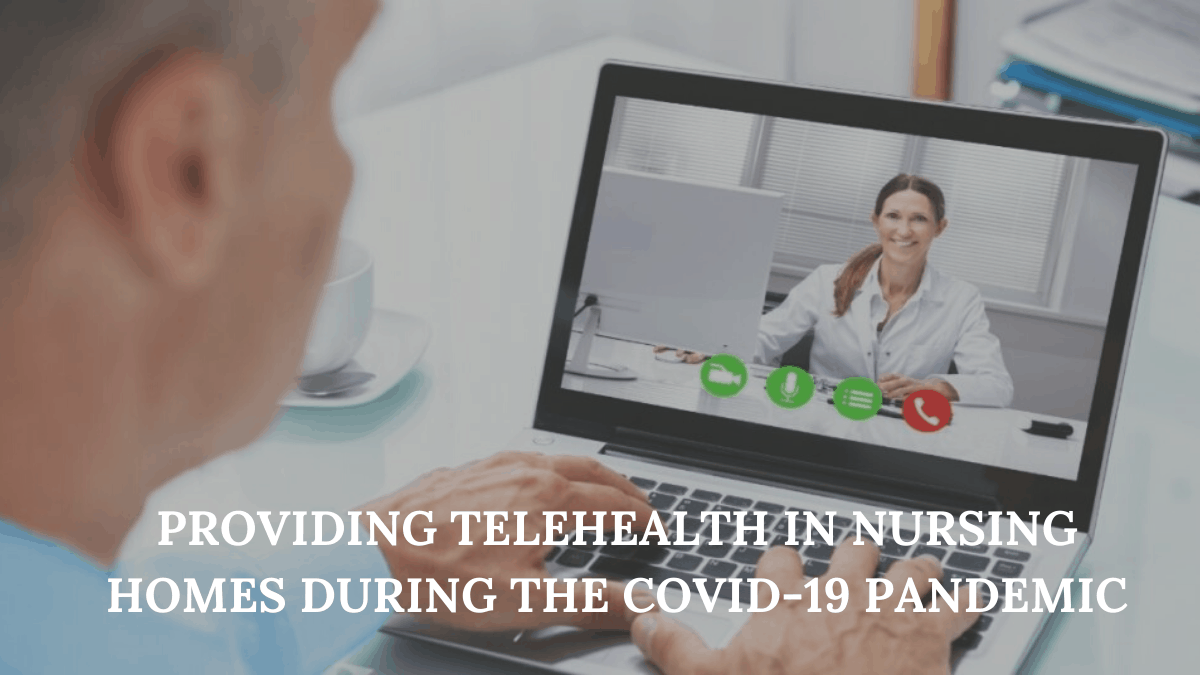
Providing Telehealth in Nursing Homes during the COVID-19 Pandemic
So, what are the challenges facing telehealth in nursing homes?
Our older generation is more vulnerable to the novel coronavirus crisis. The stats and figures coming out from many severely affected regions around the planet have made it crystal clear. The symptoms are extremely dire in our elder community. This means nursing homes and other old-age care facilities are also facing significant risks.
Nursing homes are already taking precautionary measures like banning visits, canceling recreational activities, etc. to ensure the elders in their care are safe from this deadly virus. However, this may cause further problems. Isolating the elders from the outside world and canceling their recreational activities can take a heavy toll on their mental health.
Thankfully, psychologists and behavioral practitioners are considered essential workers and can render their services via an array of telehealth technology at their disposal. Medicare and Medicaid services are already allowing psychologists and other behavioral practitioners to use video conferencing tools such as Skype, Zoom, etc. to provide care to our elder community.
Now getting Telehealth to work in such facilities can be extremely challenging. Many clients do not have their own personal devices. Plus, a psychologist also needs to seek cooperation from nursing home staff who are already exhausted due to the ongoing crisis.
There are certain tips and methods that can be employed, to make sure care is provided to the elderly in the confines of their nursing homes or institutes. In this article, we will be exploring some of those tips.
So without much further ado, let’s look at a few tips that can make the Telehealth process run smoothly for nursing home staff and residents alike.
Tips for Smooth Functioning of Telehealth Process
Establish an Onsite Telehealth Liaison
Assign one staff member from the nursing home with the task of setting up and transferring telehealth devices from one client to another. Make him in charge of making sure everybody gets their time on the device. While executing this task, the staff member should ensure that all infection control protocols are being followed diligently.
Contact Staff
Reach out to your point of contact in the Tele-health facility, and collaborate with them to establish a comprehensive telehealth service plan. Check whether the facility has an appropriate device to deploy telehealth services, or whether you would be required to provide it to them. Find out whether they already have a telehealth program being used in association with other medical providers, and ask whether you can jump on-board with them.
Be Flexible with Your Schedule
Practitioners who render telehealth services daily are bound to be exhausted or overburdened by sessions. Conducting sessions across multiple platforms in one day may seem reasonable to neuter the stress of rendering care. Catering to six patients over a period of three hours is more efficient than catering to 10 in an 8-hour shift. This will allow reprieve for both the practitioner as well as the telehealth liaison. So it is wise to consider lesser sessions per site.
Educate the Staff
The nursing staff is present in nursing home facilities to take care of the daily needs of their elderly residents. As such they may not be well versed with understanding mental health needs. So it becomes the responsibility of a practitioner to inform and educate the nurses on the essential nature of mental health care. Explain to them how loneliness, anxiety, fear of the virus can lead to complications of mental health in their residents. Make sure you appreciate them for upholding the fundamental principles of telehealth technology as you need to build an amicable relationship with them. This is all necessary for the telehealth process to work effectively.
Think on Your Feet
We can assume that most residents of nursing homes do not have their own personal devices. This makes rendering of telehealth services all the more challenging. Therefore it is essential for practitioners to think on their feet to ensure these barriers are surpassed without a problem. If the facility you are working with does not possess such technology, then go ahead and provide them one yourself. For residents that do have their own telephonic devices, simply note down their number and connect with them directly via any teleconferencing tool like Skype and Zoom.
Inform the Site about Medicare’s Telemedicine Facility Fee
Medicare administrative personnel have lifted requirements to bill an originating facility fee for conducting telehealth sessions. The facility is now allowed to bill facility fees for the duration of the ongoing public health emergency. So the originating facility is now eligible for payments of originating site facility fee, which is independently billable under Medicare Part B.
The fee can easily cover payment of an hourly rate employee, who can be used to deploy and manage telehealth services in such institutions. Inform the sites of this benefit, and it will make your job of getting telehealth care available in such facilities a tad bit easier.
Funding
You can always consider funding a telehealth program in such facilities by applying for finance for technology and telehealth devices under the CARES ACT. Nursing facilities are already eligible for funding under this act, so why not exploit it for the greater good.
The Future of Telehealth Nursing amidst a Pandemic
As you can see, being more engaging and understanding of the regulations around telehealth in nursing facilities can make the implementation of telehealth easier in LTC sites.
As the crisis reaches its zenith, the need for telehealth only becomes more and more prevalent. We have to assume that the threat of this pandemic won’t be over soon. Therefore reliance on telehealth technology might very well become a norm.
As a psychologist or mental health practitioner, you should do everything in your power to ensure the elderly get the care they need pertaining to mental health. The above tips ensure you do just that.
DENmaar’s TeleHealth Services
At DENmaar, our telehealth solution offers both patients and providers with a communication technology that allows the access and management of health care services from homes of patients or the practices of doctors. This teleconferencing feature allows practitioners to attend to their patients, on their computer screens, where-in they can consult and serve their clients without having to make them wait in their clinics or making them transit long distances.
All you have to do to access our feature, whether you are a provider or patient, is to sign up to our app and avail our telepsych feature.
Related Posts
How to Expand Private Practice Using Telemedicine in 2022
Let’s face it, access to healthcare for millions would have been practically...
How Telehealth Technology is Transforming Modern Healthcare
Most people are not even aware, but Telehealth technology has been around since...
Cigna Embraces Telehealth Technology
Cigna has finally launched its own Telehealth services to offer its 12 million...
Transform Patient Care with Our Innovative Patient App: Your Health, Your Control
Technology has become a vital aspect of our daily lives, so it is no surprise...




